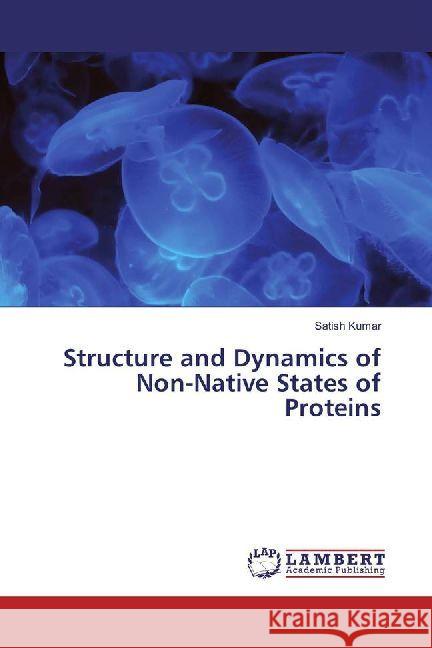Structure and Dynamics of Non-Native States of Proteins » książka
Structure and Dynamics of Non-Native States of Proteins
ISBN-13: 9786202006880 / Angielski / Miękka / 2017 / 176 str.
Protein aggregation and deposition in different tissues culminates in a wide range of diseases like Alzheimer's, Parkinson's. Aggregated proteins poses challenges to pharmaceutical industries also, where formation of inclusion bodies reduces the yield and shelf-life of recombinant proteins. Thus understanding the mechanism of protein aggregation and inhibition is urgently required to delineate the pathogenicity linked with several diseases and to circumvent the problems associated with the isolation and long term storage of biopharmaceutical protein drugs. Here, we proposed the aggregation mechanism of hen egg white lysozyme (HEWL) at alkaline condition. We also employed several additives like chemical surfactants and chitotriose, a competitive inhibitor of lysozyme to inhibit the HEWL aggregation at alkaline condition. We not only successfully inhibited the HEWL aggregation but also retained its activity at harsh condition. We also revealed that Thioflavin T is not a specific probe for amyloid but it can show enhanced fluorescence with cellular components. Present work will put a new insight into protein misfolding and aggregation and approaches towards therapeutic intervention.











